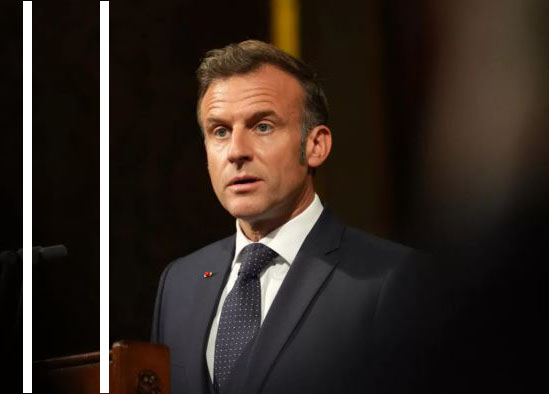
In a historic state visit to the United Kingdom, French President Emmanuel Macron declared that France and Britain will play a pivotal role in “saving Europe” amid the political, economic, and security challenges facing the continent. These remarks came during a speech at Westminster Palace in the presence of the British Prime Minister, sparking widespread debate about the future of European cooperation post-Brexit.Macron: France and Britain Will Save Europe
The State Visit and Agenda
Macron’s three-day official visit comes at a critical time for Europe, as the continent grapples with escalating crises—from the war in Ukraine and energy shortages to the rise of populist movements opposing the European Union project. The French and British leaders are expected to discuss strengthening bilateral cooperation in defense, the economy, and migration, as well as aligning their positions on global issues such as the Middle East conflict and the challenges posed by China and Russia.Macron: France and Britain Will Save Europe
The British Prime Minister welcomed Macron, emphasizing that the relationship between the two nations is “stronger than any disagreements,” a nod to past tensions over issues like illegal migration and fishing rights post-Brexit. Macron, in turn, praised Britain’s role in supporting European security, particularly within NATO, stating, “Britain is not just a neighbor but an indispensable strategic partner for Europe.”Macron: France and Britain Will Save Europe
What Does “Saving Europe” Mean?
Though Macron’s statements were broad, analysts interpret them as a message aimed more at Europe than at external actors. The continent faces deepening divisions between East and West, North and South, over migration policies, energy, and defense strategies. Additionally, the rise of far-right movements in countries like Germany and Italy threatens EU cohesion.
In this context, Macron appears keen on engaging Britain—despite its exit from the EU—in joint European projects, particularly in defense industries and nuclear energy. Diplomatic sources suggest that the two nations are exploring new agreements to enhance border security, combat illegal migration, and boost cooperation in space technology and artificial intelligence.
Reactions and Challenges
However, this vision faces obstacles, chiefly British skepticism about committing to European initiatives that could constrain its sovereignty. Post-Brexit, London remains cautious about preserving its decision-making independence. Meanwhile, some European leaders, particularly in Eastern Europe, view a Paris-London alliance as an attempt to impose Western dominance over the continent.
On the other hand, some British political circles have expressed optimism about rebuilding bridges with France, especially given the need for strong partners amid economic crises. A British MP told the BBC, “Cooperation with France is not a choice but a necessity in a world undergoing dangerous geopolitical shifts.”
Historical Context of Franco-British Relations
The relationship between the two nations has always been a mix of rivalry and cooperation—from historic conflicts like the Hundred Years’ War to their alliance in both World Wars, and from British opposition to French-led EU policies to their close security collaboration following terrorist attacks in Paris and London. Today, Macron seems intent on writing a new chapter in this relationship, relying on shared geography and mutual interests.
Europe’s Future Hangs on Paris and London
If Macron succeeds in securing British support for his European vision, it could mark a turning point for the continent—especially as German influence wanes post-Angela Merkel and countries like Hungary and Poland grow more isolated. However, failure to make tangible progress could deepen divisions and weaken Europe’s global standing.
In conclusion, this visit raises a fundamental question: Can France and Britain, despite their differences, lead Europe at this pivotal moment? The answer may unfold in the coming days, but one thing is certain—the continent needs every possible bridge between the two sides of the English Channel.

[…] In a surprising move, the White House announced that former U.S. President Donald Trump plans to reinstate new tariffs on a range of imports in an effort to protect domestic industries and boost the American economy. This decision is part of a series of trade measures that Trump sees as a way to balance trade deficits and counter foreign competition, particularly from China.Trump Reimposes Tariffs […]